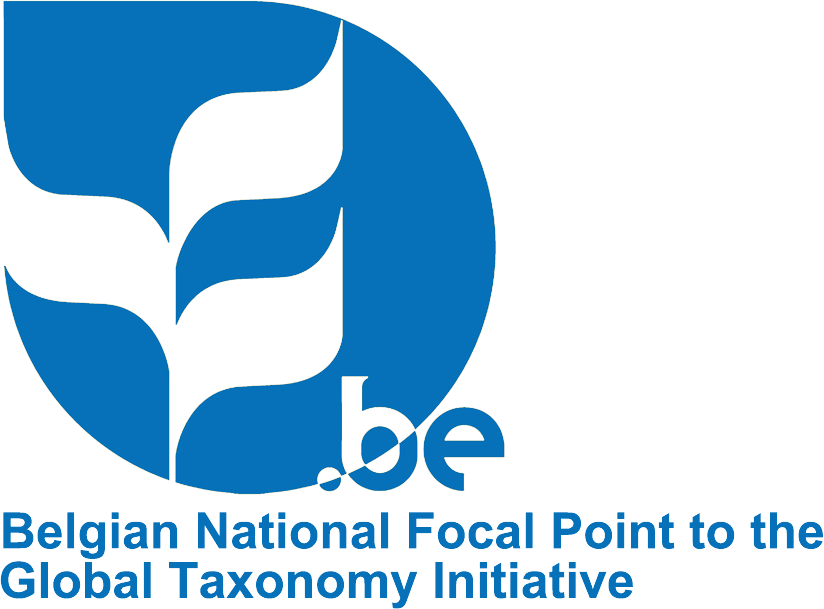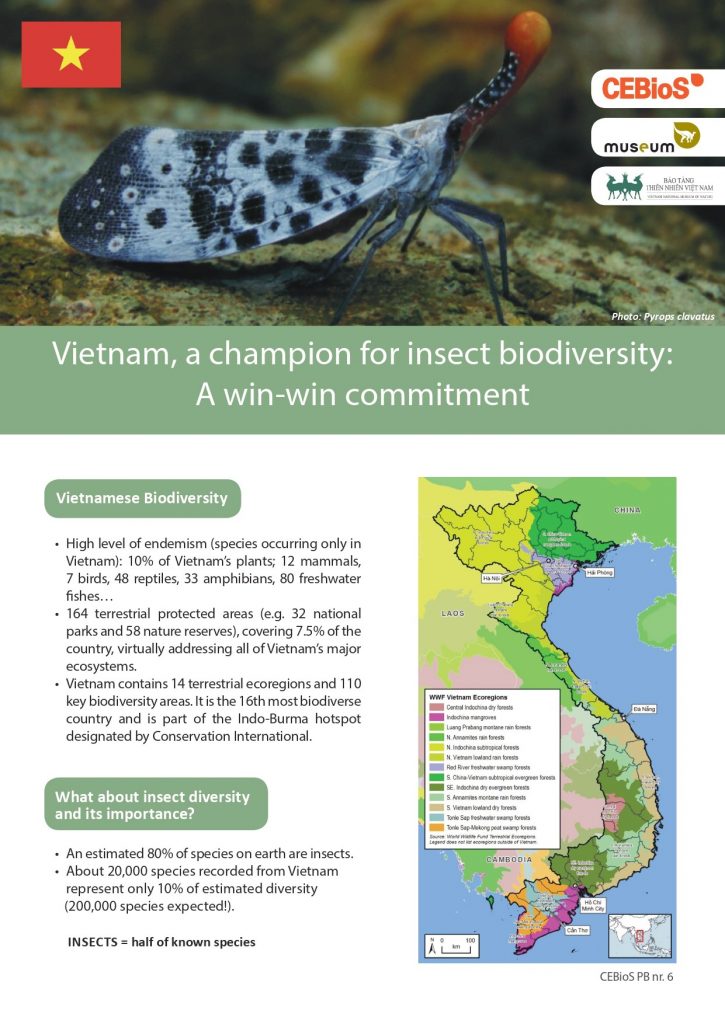GTI Policy Briefs
Home » Publications » Policy Briefs
Vietnam, a champion for insect biodiversity: a win-win commitment
As part of the Indo-Burma Hotspot, Vietnam is among the most biologically important countries in the world, counting over 120 Key Biodiversity Areas (KBAs) characterised by high levels of endemism. Also insect biodiversity is very high yet poorly known, with an estimated 90% remaining to be described. In addition, species and their natural habitats are threatened by deforestation, slash and burn agriculture, mining, poaching and pollution.
This Policy Brief, presenting case studies of the lace bugs, planthoppers and stick insects of Vietnam, therefore calls not only for more taxonomic expertise and better management tools to describe and monitor insect species, but also for stronger conservation efforts, i.e. more protected areas and corridors, to safeguard this biodiversity. The ultimate goal is to promote the interplay between taxonomic research (scientists) and effective biodiversity protection (conservationists).
This publication is the result of an uptake meeting in Hanoi that was organised by CEBioS in April 2017 to give extra visibility to the long lasting collaboration between entomologists of the Royal Belgian Institute of Natural Sciences (RBINS) and the Vietnam National Museum of Nature (VNMN). Other experts from the Muséum national d’Histoire naturelle de Paris (France), the Natural History Museum of the University of Florence (Italy) and the Royal University of Phnom Penh (Cambodia) also contributed to the elaboration of the document. The results were presented to the Vietnamese authorities.

